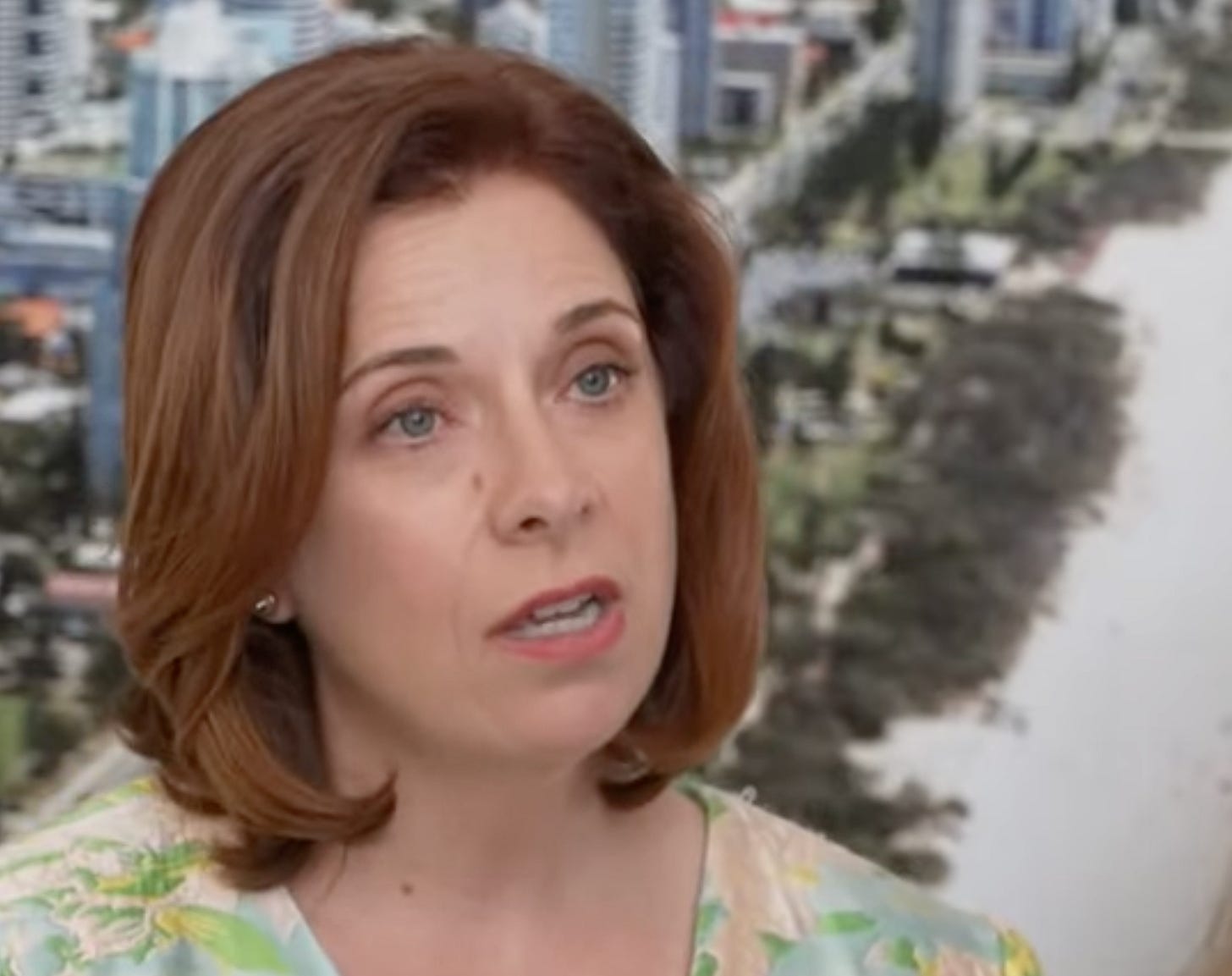Federal-State Education Meeting Addresses Social Media Ban, Bullying Review as Phone-Free Schools Expand
This piece is freely available to read. Become a paid subscriber today and help keep Mencari News financially afloat so that we can continue to pay our writers for their insight and expertise.
Today’s Article is brought to you by Empower your podcasting vision with a suite of creative solutions at your fingertips.
Australian Education Ministers concluded Friday meetings that addressed implementation of the December 10 social media age restrictions alongside the national response to a comprehensive bullying review, with Communications Minister Anika Wells and eSafety Commissioner Julie Inman Grant briefing state and territory officials on how online safety laws will intersect with existing phone-free school policies.
Federal and state education ministers convened Friday to coordinate responses to online harms affecting Australian students, bringing together social media age restrictions, anti-bullying initiatives and phone-free school policies into a comprehensive approach to protecting children in increasingly digital learning environments.
Communications Minister Anika Wells and eSafety Commissioner Julie Inman Grant briefed state and territory education ministers on the social media minimum age laws taking effect December 10, as well as the government’s broader online safety work including digital literacy, digital duty of care standards and efforts to restrict nudify applications in Australia.
Truth matters. Quality journalism costs.
Your subscription to Mencari directly funds the investigative reporting our democracy needs. For less than a coffee per week, you enable our journalists to uncover stories that powerful interests would rather keep hidden. There is no corporate influence involved. No compromises. Just honest journalism when we need it most.
Not ready to be paid subscribe, but appreciate the newsletter ? Grab us a beer or snag the exclusive ad spot at the top of next week's newsletter.
Wells told reporters she and Inman Grant departed the ministerial meeting to speak with press “when they were on the topic of the response to the bullying review,” indicating state and territory officials continued discussions on that subject after the federal online safety briefing concluded.
“I imagine that you will hear more in some form from the ministers once they have settled that response across the course of their day,” Wells said regarding the bullying review response, declining to preview state and territory conclusions on the matter.
The Communications Minister, who holds the federal Communications and Sport portfolios for the Albanese Labor government representing Queensland’s Lilley electorate, emphasized that online safety regulators play a crucial role in addressing how bullying has evolved beyond traditional schoolyard dynamics.
“Obviously, the eSafety Commissioner and I play an important role in response to the proliferation of bullying and the way that that has changed from something that we might recognise, I’m dating myself here, as schoolyard bullying, to something that happens on a supercomputer that comes with you in a pocket when you leave school and stays with you wherever you go,” Wells said.
The minister described contemporary bullying as fundamentally transformed by mobile technology, noting that harmful interactions now follow children beyond school grounds through devices they carry constantly.
Wells positioned the December 10 social media age restrictions as directly addressing this shift by changing where and how young people can interact with each other online, complementing existing state and territory initiatives including phone-free school policies.
“The work that we’re doing in both the social media and minimum age laws to change how kids interact with with each other online and where they can do that in tandem with some of the work that the Education Ministers have already been doing, phone-free schools, the response to the national bullying that you’ll hear more from once they settle that today. I think it’s all important work and we’ll keep on doing it,” Wells said.
Phone-free school policies have been adopted across multiple Australian states and territories in recent years, restricting student access to mobile devices during school hours to reduce distraction and social conflict during class time.
The intersection of phone-free schools and social media age restrictions creates a multi-layered approach to managing children’s technology use, with physical device restrictions during school hours complemented by platform-level age barriers that extend beyond the school day.
Federal Education Minister Jason Clare, who represents the New South Wales electorate of Blaxland for the Labor Party, attended the ministerial meeting but did not appear at the press conference with Wells and Inman Grant.
Early Childhood Education and Youth Minister Jess Walsh, a Labor Senator representing Western Australia, also participated in the education ministers’ discussions as the official with portfolio responsibility for youth policy.
The coordination between federal and state officials reflects the complex jurisdictional nature of education policy in Australia, where states and territories maintain primary responsibility for school systems while the federal government sets national frameworks and provides funding tied to policy priorities.
Inman Grant’s presence at the ministerial meeting underscores the increasingly central role online safety considerations play in education policy discussions, with the eSafety Commission’s regulatory powers and resources becoming integral to how schools address student wellbeing.
The bullying review response under discussion by state and territory ministers follows broader national efforts to update anti-bullying frameworks for digital environments, though specific recommendations and state responses have not yet been publicly detailed.
Wells’ framing of bullying as transformed by “a supercomputer that comes with you in a pocket” captures the challenge educators and policymakers face in addressing harassment and social conflict that no longer ends when students leave school grounds.
The social media age restrictions taking effect December 10 aim to remove one significant vector for this persistent bullying by restricting platform access for younger teenagers, theoretically reducing opportunities for harassment outside school hours.
However, critics have raised concerns that age restrictions may simply shift harmful interactions to other platforms or communication channels not covered by the regulations, potentially complicating rather than resolving youth safety challenges.
The federal-state coordination on Friday suggests officials are attempting to build complementary policy approaches that address multiple dimensions of online harms simultaneously rather than relying on any single intervention.
Phone-free school policies address device distraction and in-school conflicts, social media age restrictions limit platform access across all settings, and updated bullying responses presumably provide schools with enhanced tools and frameworks for intervention when problems occur.
The comprehensive approach reflects growing recognition among Australian policymakers that protecting children in digital environments requires layered interventions spanning multiple jurisdictions, regulatory mechanisms and institutional settings.
As state and territory education ministers finalize their response to the bullying review, the coordination with federal online safety officials demonstrated Friday suggests increasing integration between traditional education policy and emerging digital regulation.
Wells indicated the ministerial meeting covered not only immediate implementation questions around the December deadline but also longer-term coordination on how federal online safety laws will intersect with state and territory education systems.
With less than two months until the social media age restrictions take effect, the federal-state coordination becomes increasingly critical for ensuring schools, teachers and administrators understand their role in supporting students through the transition while maintaining focus on core educational objectives.
Sustaining Mencari Requires Your Support
Independent journalism costs money. Help us continue delivering in-depth investigations and unfiltered commentary on the world's real stories. Your financial contribution enables thorough investigative work and thoughtful analysis, all supported by a dedicated community committed to accuracy and transparency.
Subscribe today to unlock our full archive of investigative reporting and fearless analysis. Subscribing to independent media outlets represents more than just information consumption—it embodies a commitment to factual reporting.
As well as knowing you’re keeping Mencari (Australia) alive, you’ll also get:
Get breaking news AS IT HAPPENS - Gain instant access to our real-time coverage and analysis when major stories break, keeping you ahead of the curve
Unlock our COMPLETE content library - Enjoy unlimited access to every newsletter, podcast episode, and exclusive archive—all seamlessly available in your favorite podcast apps.
Join the conversation that matters - Be part of our vibrant community with full commenting privileges on all content, directly supporting The Evening Post (Australia)
Catch up on some of Mencari’s recent stories:
It only takes a minute to help us investigate fearlessly and expose lies and wrongdoing to hold power accountable. Thanks!








